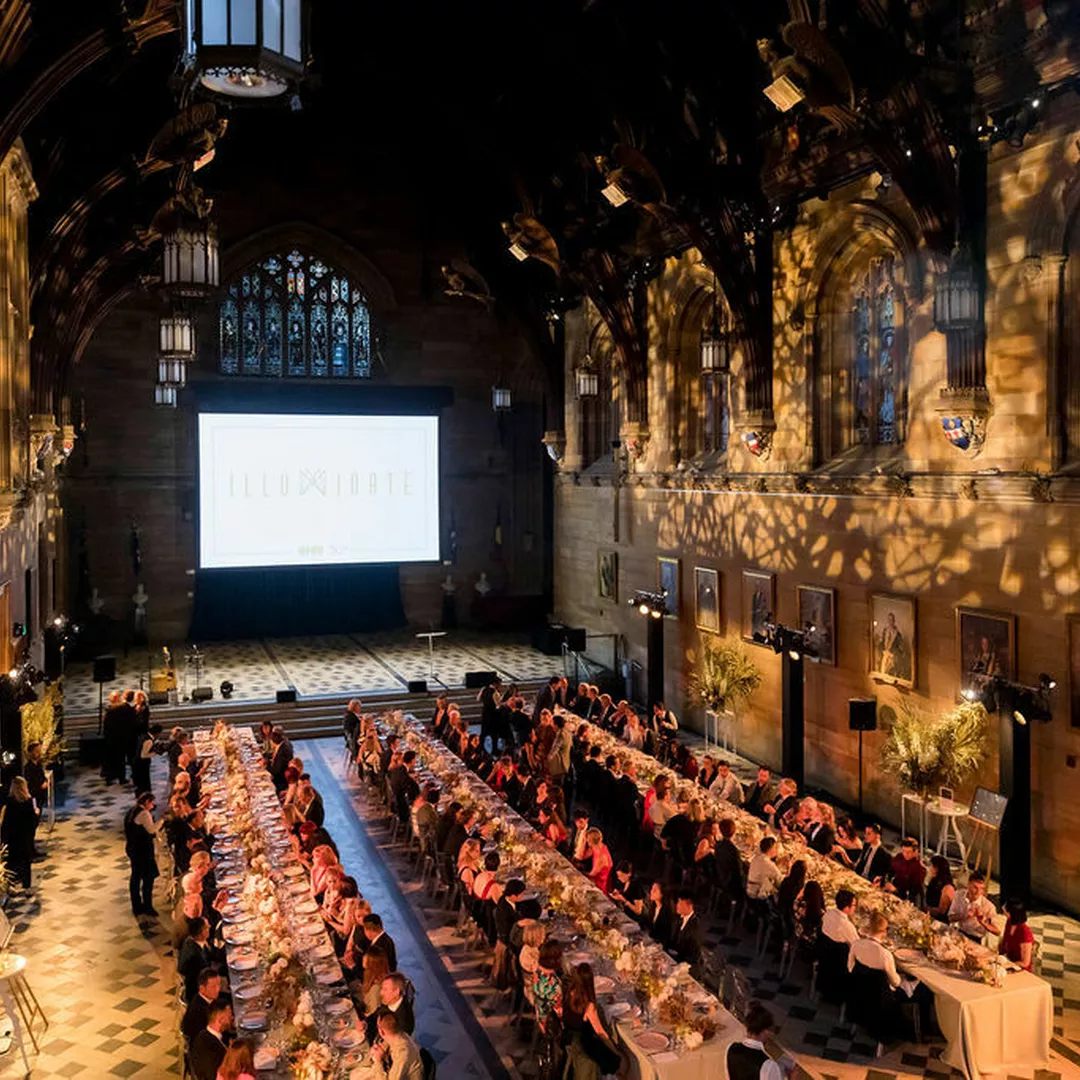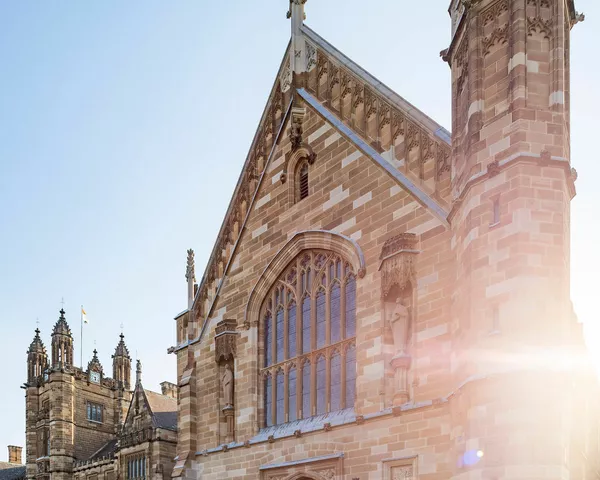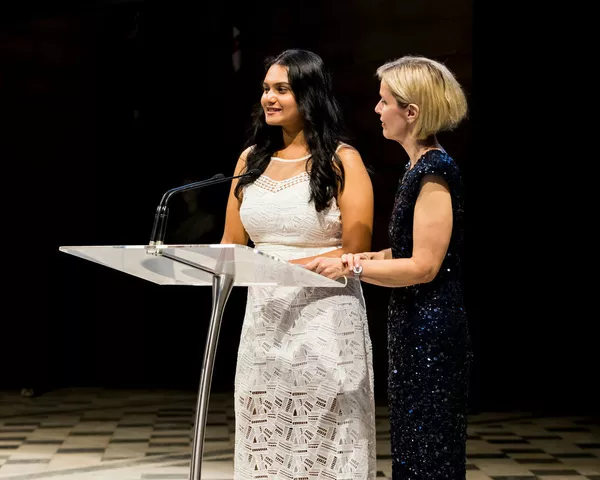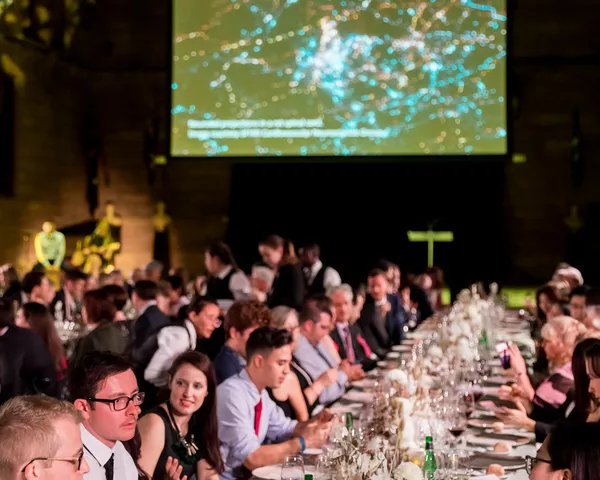The Heart Research Institute’s annual Awards for Excellence dinner, Illuminate, celebrated 30 years of discovery at HRI this year.
Held at The Great Hall, The University of Sydney, the event was attended by distinguished guests and supporters from the scientific and local community, as well as members of the HRI scientific and operations teams.
The festivities were preceded by a thought-provoking public lecture by Professor Robert Graham, Executive Director of Victor Chang Cardiac Research Institute, on ‘Cardiovascular disease in women: a story in three chapters’ at the Charles Perkins Centre Lecture Theatre, The University of Sydney.
Congratulations to our Award Winners
A highlight of Illuminate is recognising the achievements of some of HRI’s best and brightest early/mid-career researchers (EMCRs). This year’s awards go to these four deserving researchers.
Jun Ki Hong, Cardiovascular Medical Devices Group – Student Award
Mr Jun Ki Hong is currently carrying out his PhD with Heart Research Institute (HRI) Group Leader, Dr Anna Waterhouse (Central Clinical School, Faculty of Medicine and Health) and A/Prof Chiara Neto from the School of Chemistry and The University of Sydney Nano Institute. His research interests lie at the interface of nanoscience and biomedical research, having graduated from The University of Sydney with a double major in Chemistry (Honours Class I) and Cell Pathology. His core research topic is in studying the applications of nanotechnology for medical devices used in the treatment of cardiovascular diseases, supported by an Australian Government Scholarship and HRI.
Alexander Dupuy, Haematology Research Group – Student Award
Mr Alexander Dupuy is a PhD student currently studying under the joint supervision of Dr Freda J Passam and Dr Joyce Chiu. He graduated from the University of New South Wales with a Bachelor in Medical Sciences. He then completed his honours year with first class under the tutelage of Professor Kerry-Anne Rye, head of the Lipid Research Group. After joining the Haematology Research Group led by Dr Passam and working as a research assistant for 18 months, he started his PhD studies under the same group investigating the role of thiol enzymes in the regulation of Mac-1 dependent neutrophil function.
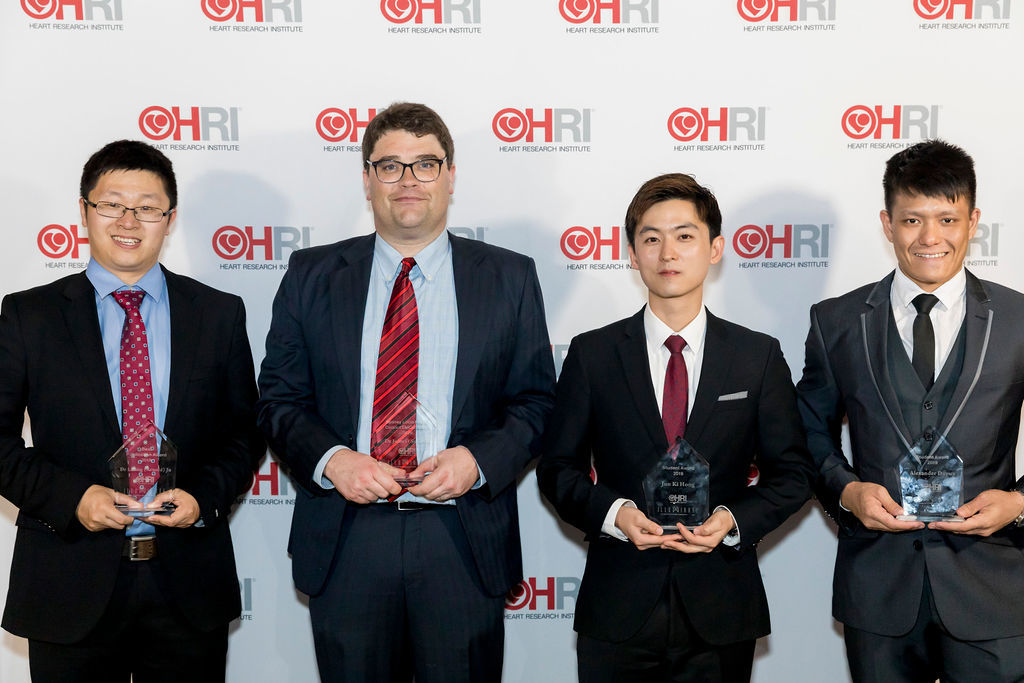
L-R: Illuminate award winners Dr Lining (Arnold) Ju, Dr John O’Sullivan, Mr Jun Ki Hong, Mr Alexander Dupuy
Dr John O’Sullivan, Cardiometabolic Disease Group – Sydney Local Health District EMCR Award
Dr John O’Sullivan has clinical and research interests in heart failure, particularly Heart Failure preserved Ejection Fraction (HFpEF), a type of heart failure that now accounts for more than half of all heart failure cases, but for which there are no treatments. He uses a range of tools to study this disease, including cardiac MRI. Employing new insights from his HFpEF research program, he aims to offer the most up-to-date, evidence-based therapeutic strategies to help patients with this disease.
Dr O’Sullivan has a strong clinical interest in cardiometabolic disease: how unhealthy diet, overweight / obesity, and insulin resistance interact with cardiovascular disease, driving atherosclerosis and heart failure. He also studies the role of the microbiome in these diseases.
Cardiovascular prevention, particularly how to employ the latest evidence in dietary science and exercise to prevent and manage cardiovascular disease, is a core focus of John’s clinical interests.
Dr Lining (Arnold) Ju, Thrombosis Group – Best Publication Award
Dr Ju is investigating the mechanosensory proteins in our cardiovascular system and how blood cells utilise them to sense haemodynamic blood flow. He proposes new therapeutic strategies can efficiently prevent disease-forming clots, or thrombosis, particularly for people with diabetes who suffer from resistance to conventional anti-thrombotic drugs. Considering that diabetes represents the biggest challenge confronting the Australian healthcare system, his discovery will protect those that are most vulnerable to heart diseases. This emerging area of cardiovascular mechanobiology involves the application of Dr Ju’s biomechanics/bioengineering expertise at the molecular and cellular scale.
Supporting our Rising Stars
The night also raised funds to support the rising stars of tomorrow, and the breakthroughs they will make in the coming decades in the fight against cardiovascular disease.
Thank you to all friends and supporters of HRI for helping us to celebrate in style and for making the evening a success.
